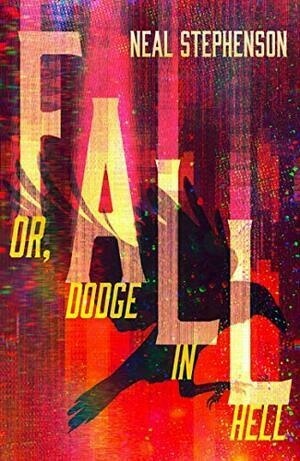Seveneves
I’m currently relistening1 to Neal Stephenson’s Seveneves and just like the first time around I really like it. I have been falling behind on books lately but this past weekend I felt like listening to something and I was completely burnt out on podcasts so I decided to go back to this one. It’s so grand in scope and such a thrill-ride and then parts of it is, despite it’s dire subject matter, sort of a cozy book to me. Yes, the situations the characters are in are terrible and they have to make some tough choices but is competent people making the best out of their situation, solving problems as they come up. That is apparently something that really speaks to me.
I started listening on Saturday and today (Wednesday) I finished part two of the book. Oh, speaking of nothing in particular in the book, this post will be full of spoilers for the book. The intended reader is somebody who has read the book, or who doesn’t give a shit about being spoiled. Alright, moving on.
As I was saying, I finished part two of three today and I haven’t started on part three yet, so anything I write about ”5000 years later” will be based on my memory from my first time through the book. That being said, I think the first and the third part are the best ones. The second part drags from time to time.
Part One
The first part is just fantastic. The opening is great. I quoted and raved about the opening sentences on my first listen of it but it’s not just those lines. The first couple of chapters are amazing. It draws me in from the first sentence and then keeps it up, without it feeling ”cheap” like som page-turners can feel. The way the ending of one section can so nicely translate into the beginning of another, even thought the latter one is from the perspective of a different person and/or some time later gives it a really nice flow.
There’s also a clear way that things are heading. Maybe not as clear as a goal but at least I as the reader know that we are moving toward The White Sky and The Hard Rain and that everybody needs to to everything they can before those events.
Part Two
I’ve been thinking a lot about part two during this listen. I don’t really have a problem with long asides about orbital mechanics or other things. On the contrary actually, I love those asides in novels. So that’s not the problem with this part of the book.
Also in my mind, part one goes on up until Dinah telegraphs repeated ”QRT QRT QRT” to he father. To me, that’s where part one ends and part two begins.
I think the problem with part two is two-fold. It doesn’t have as clear of a narrative goal as part one. It feels like there’s a continuous struggle to get somewhere, but where that somewhere is isn’t quite clear. At times that makes it extra tense, which is good, but at other times it feels like it’s not really going anywhere.
The second problem is that it’s in part two that the main characters makes some really stupid decisions, decisions that feels out of character for them. For the first part of the novel people make the best they can out of a terrible situation, and they do it by making rational choices. Sometimes the choices are hard to make, but it’s still rational. In the second part, we have the situation with J B F.
When she shows up at the Cloud Ark, it’s in clear violation of the Crater Lake Accord. The clause about no world-leaders being allowed to be sent up seems like such an important one. Her role wasn’t to escape to orbit. Her role as president was to die with the people. Since she cowardly abandoned that, when she asked permission to come about Ivy should have declined. Yes, that’s grim, but so is nuking people the way J B F did, though given the circumstances, doing that was the right choice.
Failing to decline Julia, once she has been allowed to the Ark, once all hell has broken lose, and once Aïda is calling asking to get back to Endurance, the answer should once again have been no. She and the other’s chose to leave the Ark and to go on their own so F off and good luck.
Obviously I’m writing this with hind-sight but my memory is pretty clear on me feeling this on my first go through the book, when the situations first unfolded, as well.
And again failing that, once there on Cleft holding The Council of the Seven Eves, how, HOW can they allow Aïda and Julia to be part of the future of the human race. I get that killing them, a quarter of the human race at that point, would have been a really hard decision, but one that Tekla was ready to make. But they wouldn’t have had to do that. Let them live, but don’t assist them in having children. Particularly Aïda is so clear with her intentions, letting her build her own clan when the others could have just as easily refused her seems so illogical.
That being said, without these choices there wouldn’t have been a part three. And I love part three. Well, I loved it the first time around. Let’s find out tomorrow if I still do.
- I have a really hard time deciding whether I should call it listening or reading, when I’m not the one doing the actual reading of a book. ↩
 Henrik Carlsson posted this
article
on
and tagged it with Neal Stephenson Reading Seveneves
Henrik Carlsson posted this
article
on
and tagged it with Neal Stephenson Reading Seveneves 
 ©
©
Replies and comments
jack
24 juni, 2021 12:36@MrHenko ”5,000 years later…” :)
MrHenko
24 juni, 2021 12:43@jack I can genuinely say that I loved that part as well, or maybe even especially that part. I need to write up a proper review to gather my thoughts but this was just the perfect book for me now.